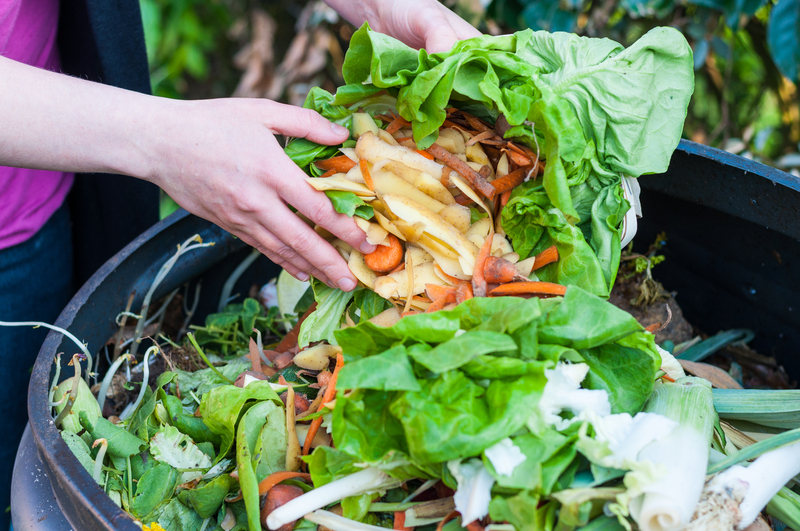Bulky Waste Items Demystified: Ways to Save Money on Removal
Dealing with bulky waste items--think old sofas, fridges, garden sheds, or mattresses--can be a real challenge for homeowners and businesses alike. Not only are these articles unwieldy and often heavy, but the cost of bulky waste removal can quickly add up. Fortunately, there are many cost-effective strategies and eco-friendly solutions to tackle your unwanted items. In this comprehensive guide, we will demystify bulky waste and provide actionable tips to help you save money on removal.

Understanding Bulky Waste: What Counts as Bulky Items?
Before you can dispose of your items responsibly, it's important to understand what qualifies as bulky waste. Bulky waste items are those that are too large, heavy, or awkward for standard household waste collection. Here are some typical examples:
- Sofas, armchairs, and couches
- Mattresses and bed frames
- Refrigerators, washing machines, dishwashers
- Tables, wardrobes, and other large furniture
- Large toys, carpets, and rugs
- Garden sheds and outdoor equipment
- Large televisions and electronic devices
Local council guidelines may vary, so always check with your council regarding what is classified as bulky household waste in your area.
Eco-Friendly Bulky Waste Disposal: Why Does It Matter?
Disposing of bulky waste in an environmentally responsible way is critical. Large items are a significant source of landfill waste and, when not handled correctly, may release hazardous substances. By choosing sustainable disposal methods, you help reduce pollution, save resources through recycling, and potentially lower costs.
Smart Strategies to Save Money on Bulky Waste Removal
Paying full price for bulky item pickup isn't the only solution. Smart, cost-conscious approaches can save you money and benefit the environment. Consider these strategies:
1. Leverage Free Bulky Waste Collection Days
Many local councils offer free collection days for bulky items once or twice a year. Take advantage by:
- Monitoring your council's website or social media updates
- Registering in advance if required
- Combining your bulky waste with neighbors to make the most of the scheduled pickup
2. Break Down Items Yourself
If you're able, dismantle furniture or appliances before disposal. Many councils charge per item, so breaking a multi-piece sofa into smaller parts may reduce costs. Plus, disassembled items are easier to store and transport.
3. Donate or Gift Usable Items
Donating large but usable items is both charitable and cost-effective. Local charities, shelters, or online platforms (such as Freecycle, Facebook Marketplace, or Craigslist) often welcome:
- Sofas, tables, and beds in good condition
- Working appliances
- Reusable building materials
Not only do you save on bulky waste collection charges, but you also help someone in need and support recycling efforts.
4. Use Council Bulky Waste Removal Services
Most local authorities offer low-cost collection for bulky household waste. While there is usually a fee, it is often lower than hiring private removal companies. Key tips to reduce costs include:
- Grouping items together for a single collection
- Sharing pickups (and costs) with neighbors
- Checking for discounts or free services for seniors or low-income households
5. Consider Private Bulky Waste Collection Companies
When council services aren't available, licensed waste removal companies can collect large items. To save money:
- Get multiple quotes and negotiate rates
- Book during off-peak times when companies may offer discounts
- Ask about eco-friendly disposal and recycling commitments
Always ensure the company is registered and provides a waste transfer note--avoiding fly tipping fines and environmental harm.
6. Reuse, Repurpose, or Upcycle Your Bulky Items
Before discarding, ask yourself: Can this item be repurposed at home or in the garden? For example:
- Old doors can become creative tables or headboards
- Wooden pallets can be transformed into garden furniture
- Broken tiles or bricks might be used in landscaping
This approach saves disposal fees and encourages sustainability.
7. Take Items to the Recycling Center Yourself
Many towns and cities have "household waste recycling centres" that accept bulky items for free or for a minimal charge. While you'll need a suitable vehicle and a bit of muscle, this is often the cheapest option.
Insider Tips: Avoiding Hidden Charges for Bulky Waste Disposal
Some removal services spring hidden fees on customers--whether it's extra charges for stair carries, distance from the curb, or disposal of hazardous materials. Protect your wallet with these insider secrets:
- Clarify all costs up front: Always get a clear, written quote before booking waste removal.
- Prep items for collection: Place items in an accessible area, such as the curb or driveway, to avoid "difficult access" fees.
- Remove fridge doors and hazardous parts: Some appliances (like refrigerators or microwaves) require special disposal. Council sites may accept them for free, while private companies may charge extra.
- Book ahead: Last-minute collection often costs more. Plan your disposal with time to spare.
The Truth About Fly Tipping and Illegal Disposal
It might be tempting to dump items or hire a cheap, unlicensed removalist, but think again. Fly tipping is illegal and carries substantial fines--sometimes up to ?50,000 or a prison sentence in the UK. Illegal dumping hurts not just your wallet but the community and environment. Always use legitimate disposal routes.
Bulky Waste Removal: Frequently Asked Questions
What is the difference between a council bulky waste collection and a private company?
Council collections are often cheaper (or free) but may have restrictions on acceptable items, collection frequency, and waiting times. Private companies collect almost anything at your convenience but come at a higher cost. Both should ensure responsible disposal and recycling.
How can I reduce the volume of my bulky waste?
*Break down* furniture, remove detachable parts, and flat-pack wherever safe to do so. Dismantling can help fit more into council quotas or your own vehicle for self-disposal.
Can all bulky items be recycled?
Not everything is recyclable, but many items--such as metals, untreated wood, and some plastics--can be processed. Soft furnishings, certain electricals, and composite materials may go to landfill or require specialist handling. Check with your local recycling center for specific guidance.
Are there discounts available for seniors or those on benefits?
Yes, many councils offer reduced rates or even free bulky waste collection to pensioners, disabled residents, or those on low incomes. Check your local authority's website or call their waste services hotline.
What are the penalties for illegal bulky waste disposal?
Penalties for fly tipping vary but can include fixed penalty notices, prosecution, large fines, and even prison sentences. Always check the credentials of anyone you pay to collect waste and ask for a waste transfer note.

Bulky Waste Disposal Etiquette: Being a Good Neighbor
Considerate disposal is not just about saving money--it's about keeping your street and neighborhood clean. Here's how to handle large waste responsibly:
- Don't leave bulky items on the curb unless authorized and scheduled for pickup.
- Communicate with neighbors--combine collections where possible.
- Cover items if rain is forecast to prevent water damage and make lifting easier.
Conclusion: Demystifying Bulky Rubbish Collection While Saving Money
Disposing of bulky refuse items need not break the bank. With a little research and planning, you can use free (or low-cost) council services, donate usable goods, or choose affordable licensed collectors. Remember:
- Plan ahead for council collection dates and bulk pick-up events
- Break down items when possible to lower per-item fees
- Donate and recycle before considering disposal
- Avoid illegal disposal and always get a waste transfer note
By following these bulky waste removal money-saving tips, you'll keep costs down, help the planet, and maybe even help your neighbors. The process doesn't have to be overwhelming--let this guide empower you to make smart, sustainable decisions about your bulky waste.
Ready to Tackle Your Bulky Waste Responsibly?
Explore your local council's website for guidelines on bulky waste collection, seek out charity shops or online trading groups for unwanted goods, and compare rates from registered waste hauliers if you need a professional hand.
With your new-found knowledge, you're well on your way to affordable, responsible bulky rubbish clearance--and a cleaner, greener home.
